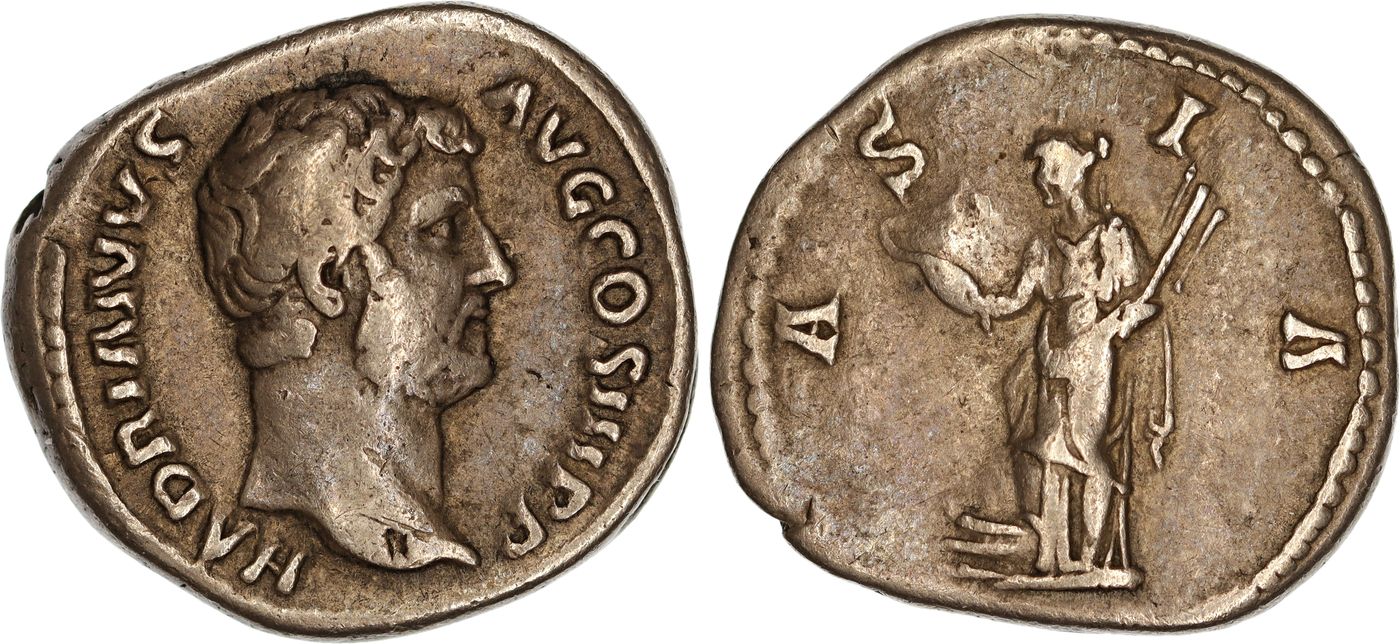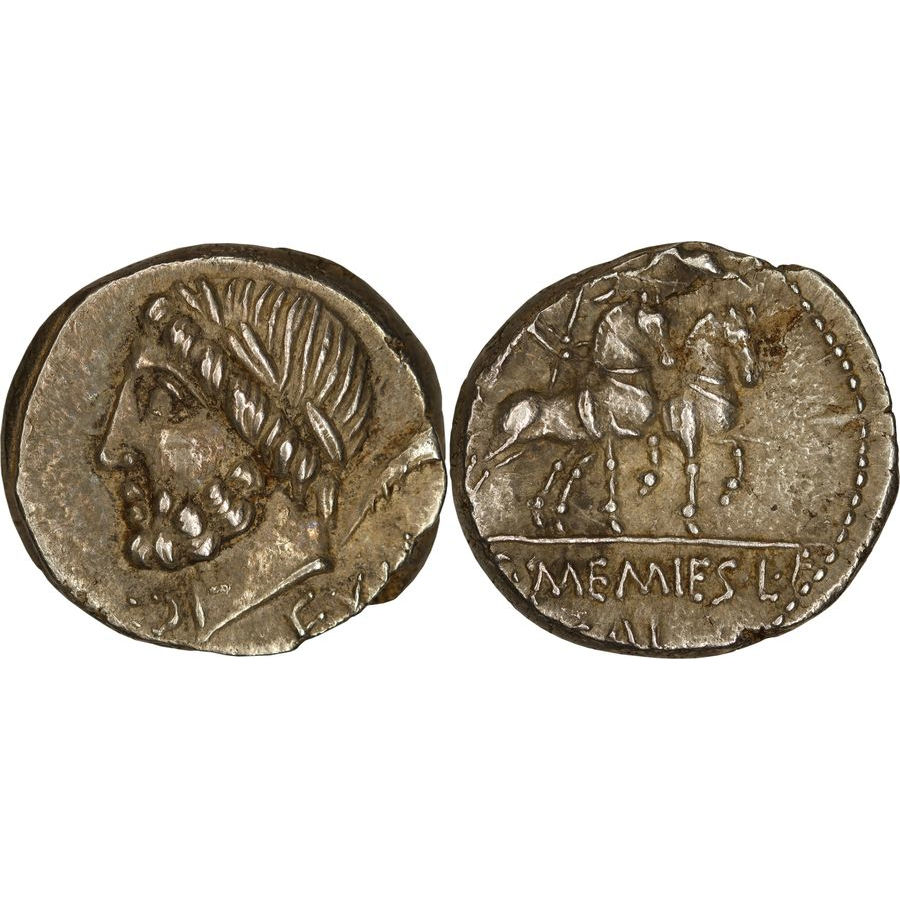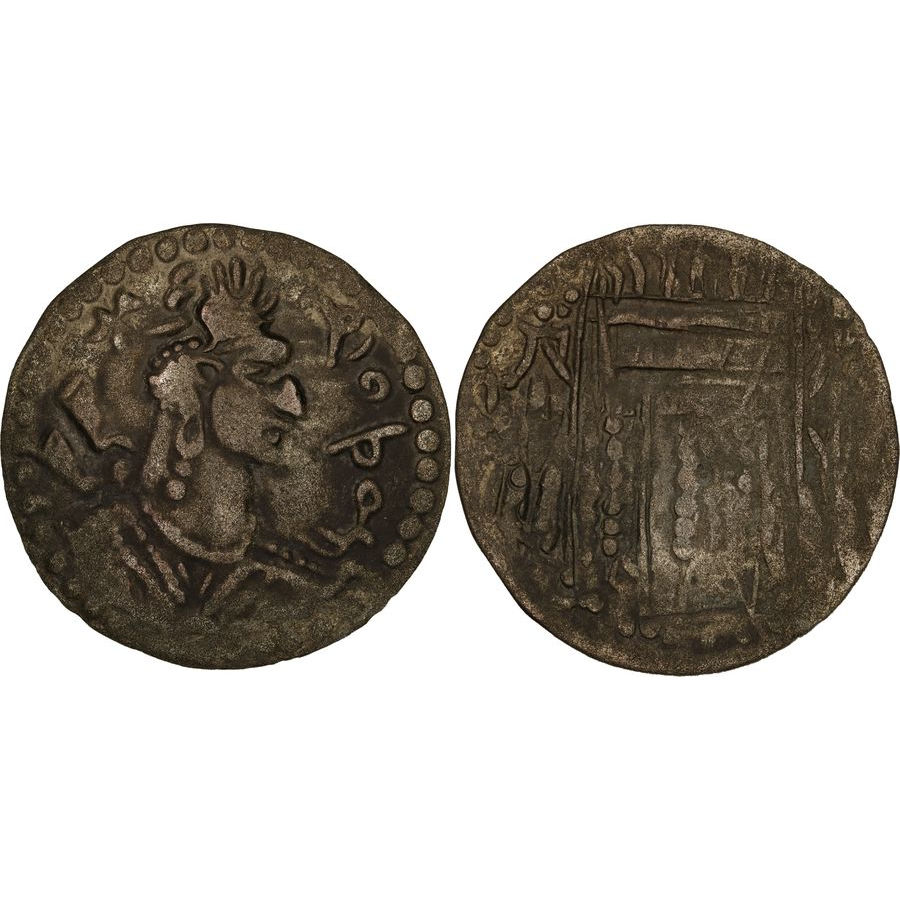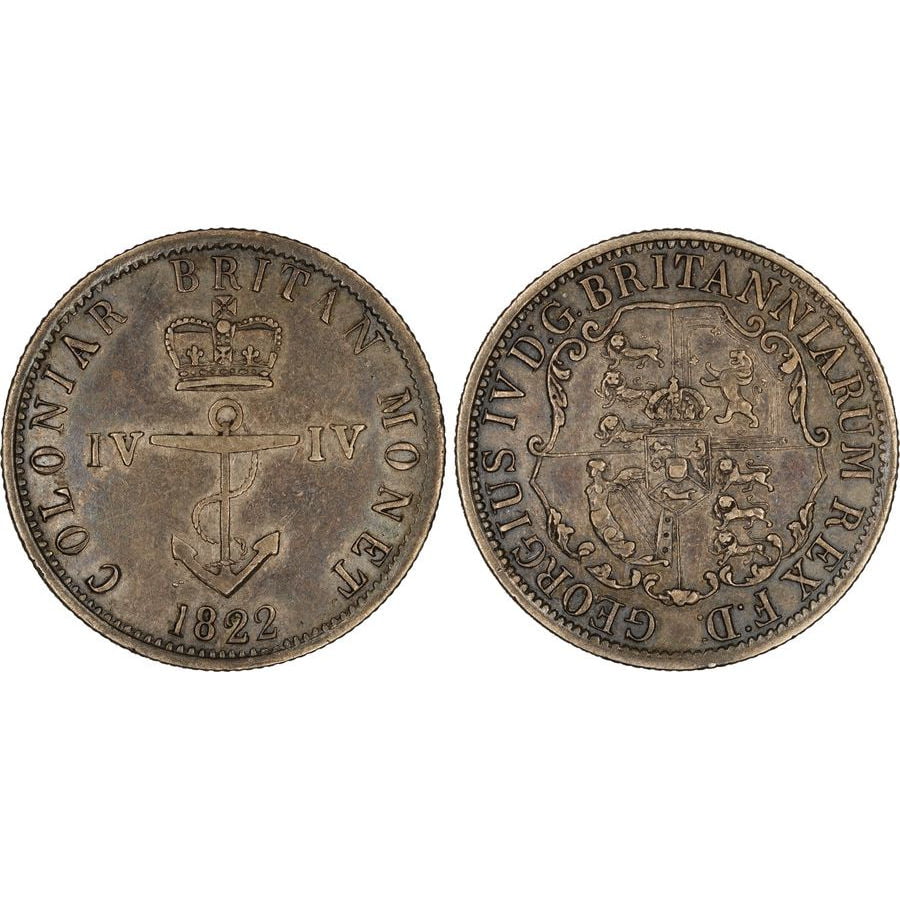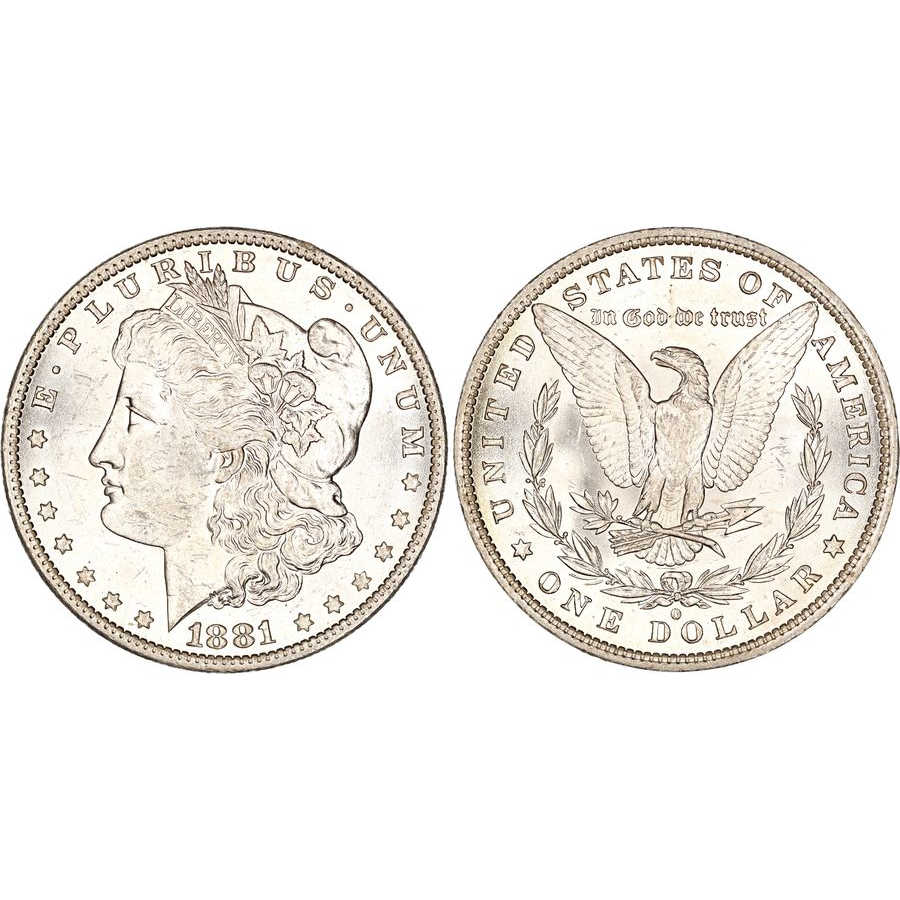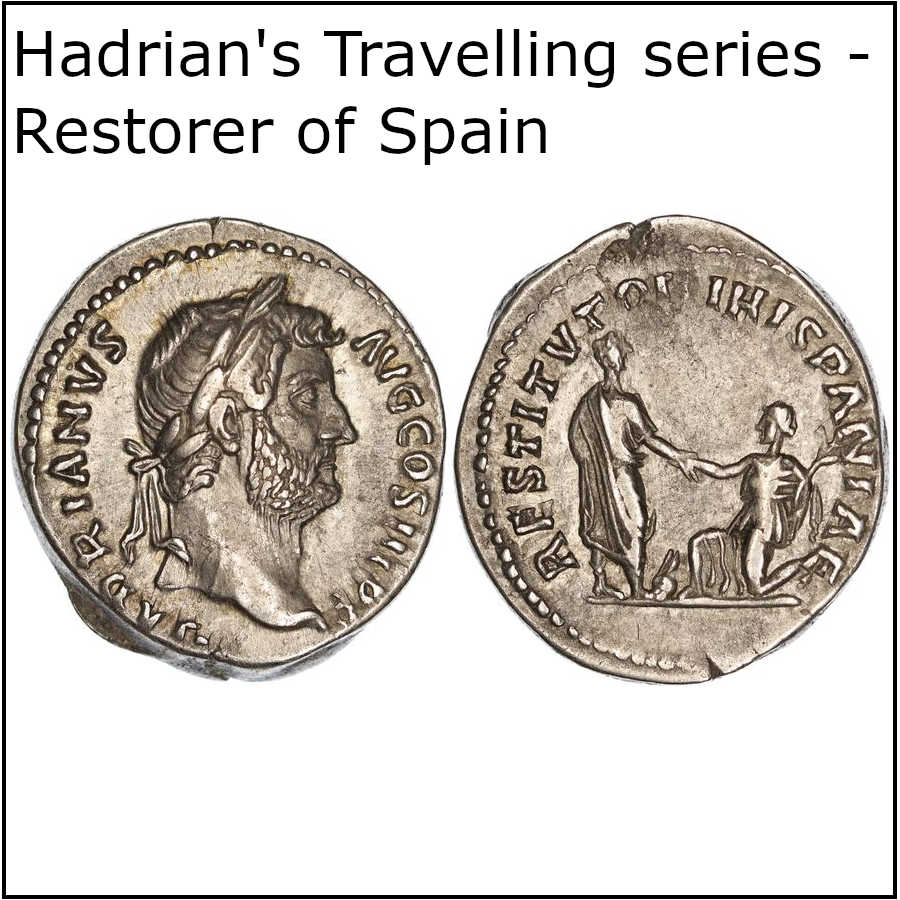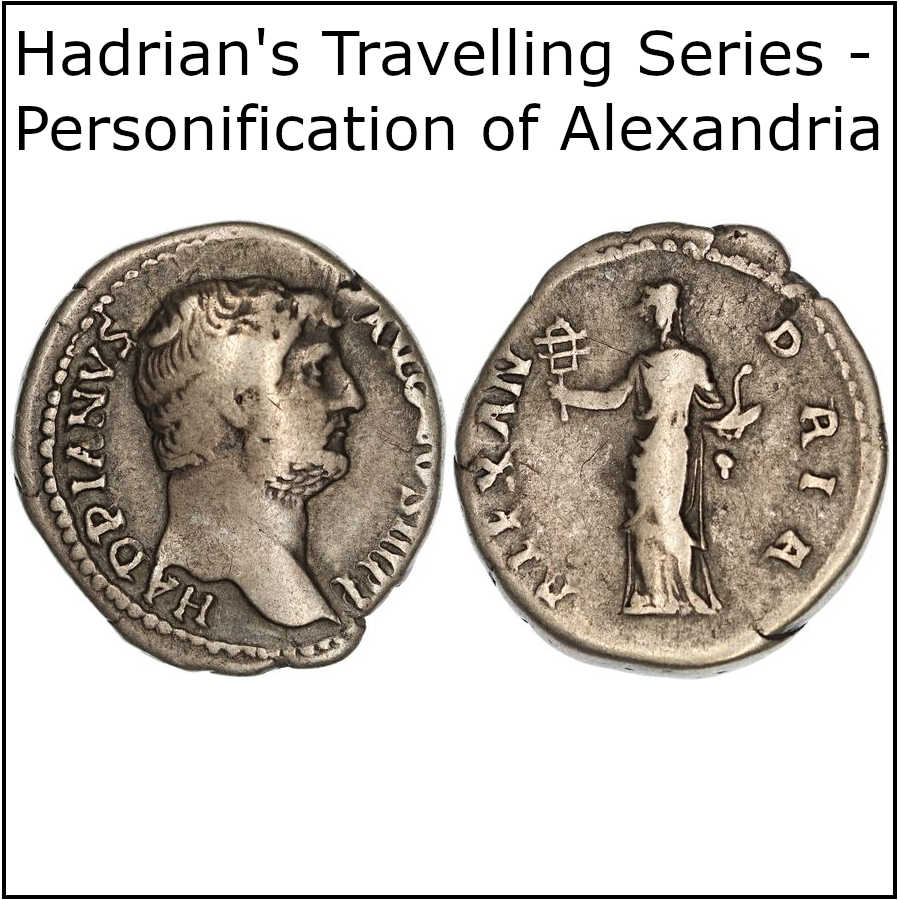Description
Caesar Traianus Hadrianus, Roman Emperor of the Nerva-Antonine Dynasty 117-138 AD, Silver Denarius (3.12g, 17mm), Travelling Series – Personification type, ‘Asia’, Rome mint 130-133 AD. Obverse: Bare head of Hadrian facing to the right, legend surrounds, “HΛDRIΛNVS ΛVG COS III PP”. Reverse: Asia stands facing to the left with foot on prow, draped in stola and holding sickle aloft in right hand and resting rudder in left arm, legend surrounds, “ASIA”. RSC-188. Quite toned and struck on a slightly oval flan, evenly worn, a modest personification type from the highly desirable travelling series, near Very Fine.
Prōvincia Ā̆sia was a Roman province spanning the western regions of Anatolia, much of modern-day Turkey, and was created following the annexation of the Attalid Kingdom. In 133 BC, King Attalus III Philometor Euergetes passed with no male children or heirs, and in his will left his kingdom to the Roman Republic, believing this course of action would avoid the bloodshed involved when the Romans would inevitably conquer Anatolia following his death. With the beginning of the Principate, Augustus established a proconsulship for Ā̆sia, making it one of the most prestigious senatorial provinces, and with Roman support, the region, which was essentially hundreds of largely self-contained Greek city states, flourished with urbanization. After personally negotiating a settlement with the Parthian King of Kings Osroes I, Hadrian inspected the Roman defences along the eastern border then moved west into Prōvincia Ā̆sia, where between 123-124 AD he visited many of the great city states such as Cyzicus, Pergamon, Ephesus and Sardes, before moving onto Greece. It is said that at this point, the emperor met his young lover Antinous. Later, after visiting Greece a second time, Hadrian travelled through Prōvincia Ā̆sia and arrived in Egypt in August of 130 AD. Thus, the ‘ASIA’ issue could be considered part III, ‘Anatolia’, or part VI, ‘Greece, Asia, and Egypt’, of his travelling series.
The obverse Latin legend reads “Hadriānus Augustus, cōnsulāritās tertium, Pater Patriae”, with an English translation of “Hadrianus Augustus, honoured with the office of Consul for his third term, Father of the Nation”. The reverse Latin legend reads “Ā̆sia”, naming Asia, the personification of the province.
